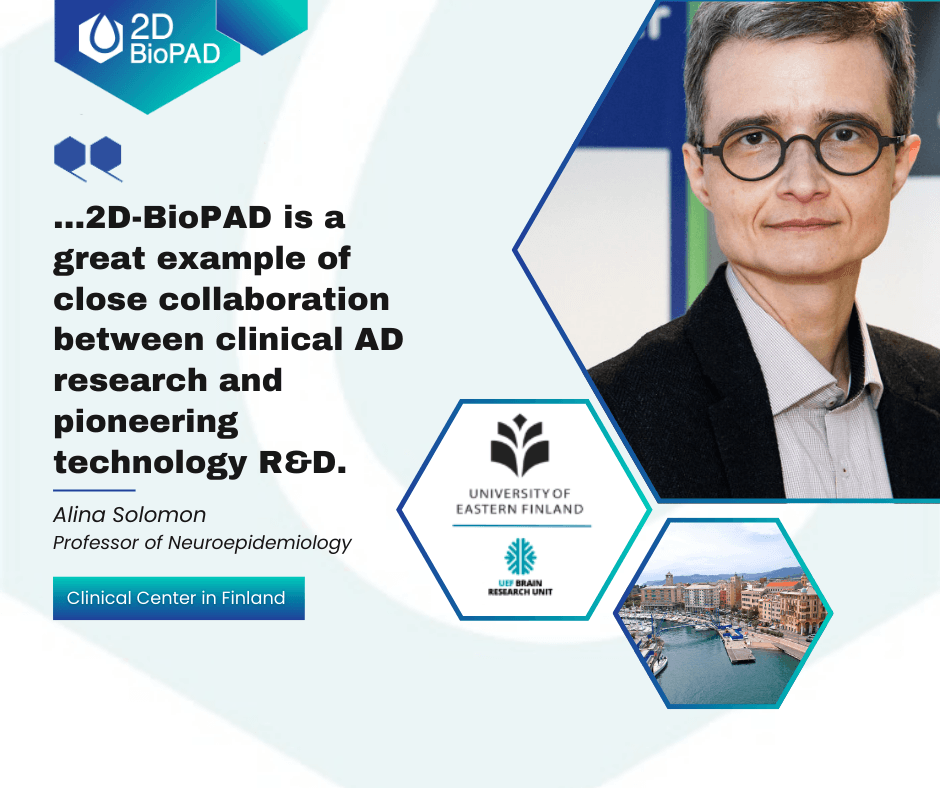
Tell us a few words about your organisation…
The Brain Research Unit (BRU) at the University of Eastern Finland (UEF) is one of the largest academic neurological clinical trial units in the Nordic countries, with experience in dementia-related clinical trials since 1992. We also work together with the memory clinic at Kuopio University Hospital.
… and what is your role in 2D-BioPAD?
The UEF 2D-BioPAD team includes both the BRU and the Neuro-Ethics and Law Research Group at the School of Law. Our main role as WP5 lead is designing and coordinating the clinical pilot studies. We are also one of the clinical study centres. The UEF BRU laboratory, with 20-year experience in development and validation of biomarkers for neurodegenerative diseases, is the benchmarking laboratory for the clinical pilot studies.
What is the current status in diagnostics for AD using blood-based biomarkers in Finland?
Finland is one of the first European countries where plasma biomarkers such as Neurofilament light chain (Nfl) and recently also pTau217 are available for diagnostics of dementia-related diseases in routine healthcare. The UEF BRU laboratory offers this national biomarker laboratory service for physicians and hospitals. At the moment this service is used mainly by specialized memory clinics.
How would it assist you to have a solution like 2D-BioPAD in your clinical practice?
The solution being developed in 2D-BioPAD would help streamline and optimise the overall (differential) diagnostic pathway for people with dementia diseases, from primary care to secondary memory clinics and then the tertiary (highly specialized) memory clinic. With the recent very promising Alzheimer’s drug developments, there is also great potential to facilitate the longer-term disease monitoring that normally happens at primary care level.
What do you believe would be the main benefits of 2D-BioPAD in AD clinical research?
2D-BioPAD is a great example of close collaboration between clinical AD research and pioneering technology research and development. For us this is an opportunity for direct involvement already in the early stages of technological developments. The multidisciplinary of 2D-BioPAD can generate both novel ideas for future research, and the technological means to implement them in ongoing and new projects.